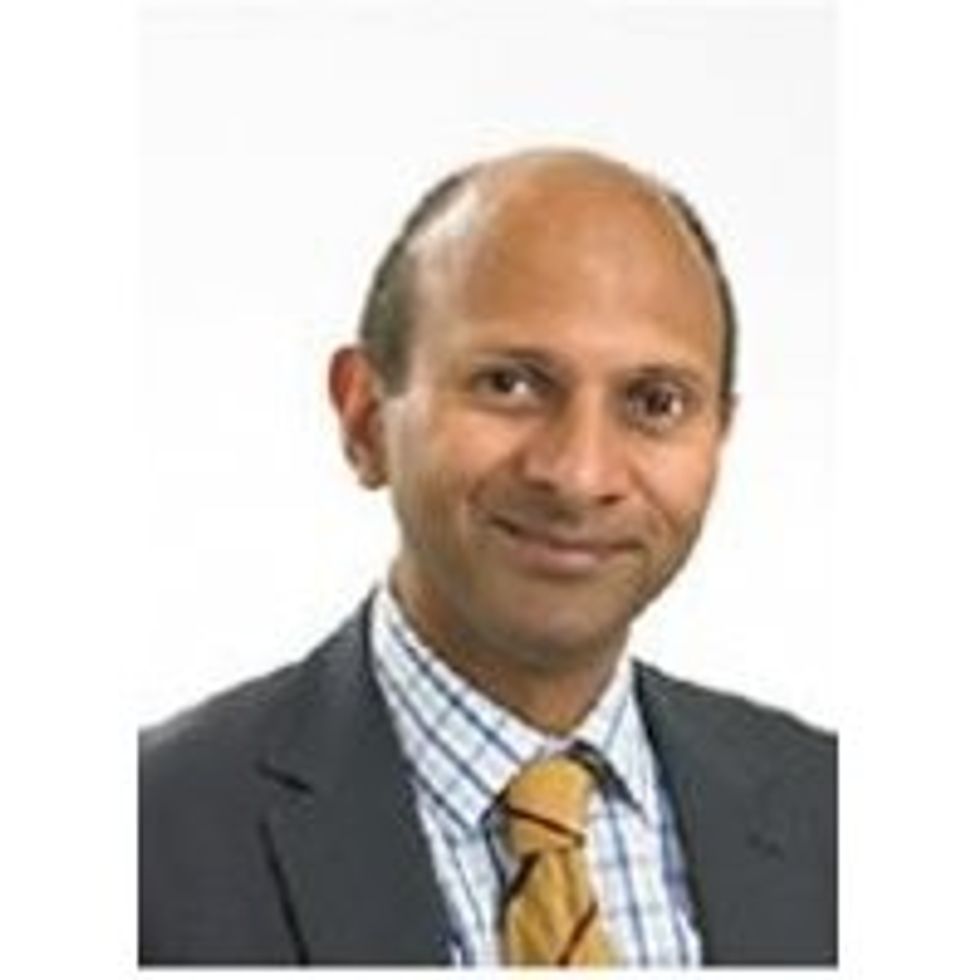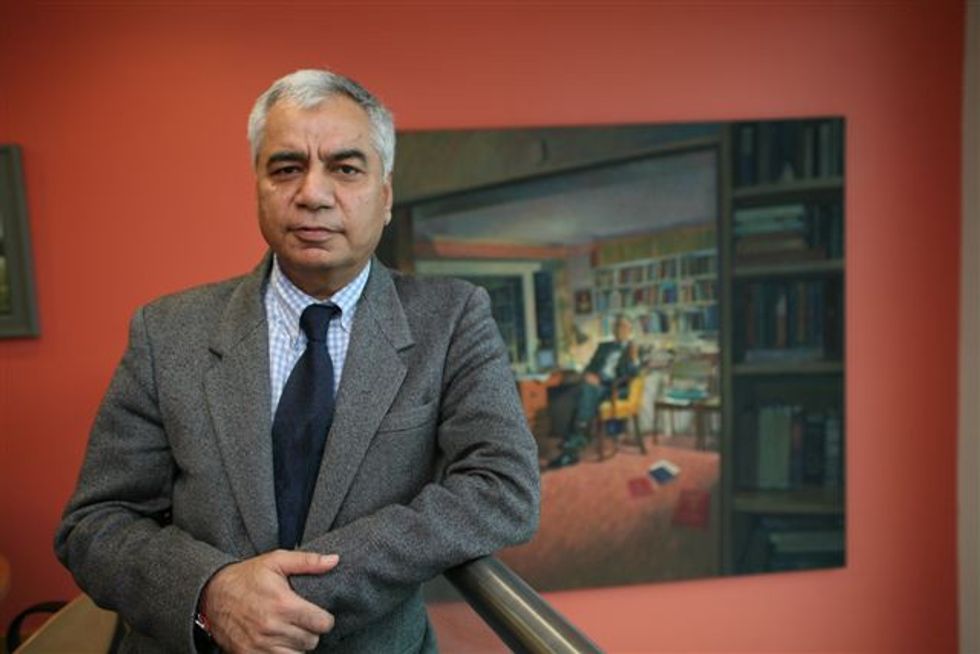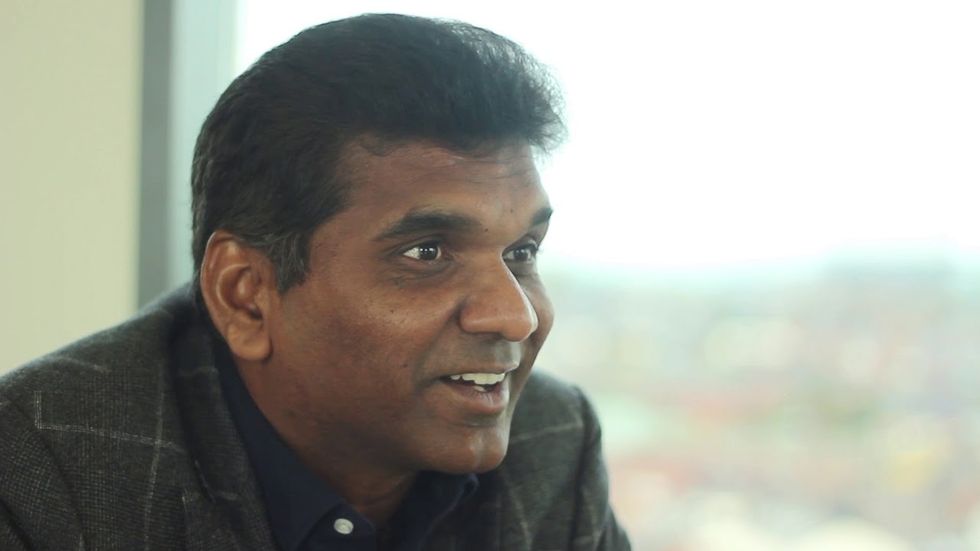THE boxer Adam Azim has been praised for drawing attention to Attention Deficit Hyperactivity Disorder (ADHD), as experts warned about the stigma against the condition in the Asian community.
Azim, 21, has spoken of being diagnosed with ADHD at a young age and his father taking him to a boxing gym aged four to better utilise his energy.
The British Pakistani from Slough, who was crowned European super lightweight champion in November after beating French boxer Franck Petitjean, also opened up about how the condition helps him in the ring and during sparring as a “superpower”.
People with ADHD can seem restless, may have trouble concentrating and often act on impulse, according to the NHS.

Dr Chris Papadopoulos, principal lecturer in public health at the University of Bedfordshire, said role models such as Azim were crucial for breaking down the stigma around ADHD and other types of neuro-divergence, especially among south Asian communities, where these topics are often misunderstood or not discussed.
He told Eastern Eye: “These individuals’ influential voices encourage wider acceptance and understanding. It empowers individuals to seek out diagnoses, which in turn enables them to access necessary government support, such as educational health and care plans for school children.
“It’s vital for public figures and community leaders to continue addressing neuro-divergence in an informed, non-stigmatising manner, so everyone can better understand and appreciate that conditions like ADHD and autism – which have traditionally been viewed as problematic, particularly in some communities – are merely different ways of thinking and experiencing the world that can be beneficial for all of us when supported appropriately.”
An estimated 2.6 million people in the UK have ADHD, 694,000 of whom are children.
Dr Chandra Kanneganti, a GP in Staffordshire, told Eastern Eye: “There is definitely a social stigma in Asian communities. If a child is hyperactive, or not listening, he is labelled a ‘naughty boy’. They [family] are often not getting them assessed for proper support and diagnosis.
“It continues into teenage years and adulthood –they are not able to get a job and achieve their maximum potential. It is vital parents recognise that if their child is hyperactive, not able to concentrate, they should see their GP.
“From the age of four or five onwards, are they not able to be controlled, have no sense of danger, are hitting others, haven’t got social skills.”
Kanneganti added that mental health referrals could take 12-24 months to complete due to a lack of workforce in the sector. The referral itself takes two to four weeks.

He said: “Voluntary services should focus on this and getting the information across. A lot of patients end up going private, which can cost up to £1,000. There is a Right To Choose option where the NHS could pay for a private assessment for autism or ADHD.”
According to the charity Mind, there are several different types of treatment for the condition such as medication, talking treatments and educational support.
Pippa Sargent, CEO of The Brain Charity, said role models like Azim sharing their own experience of being neuro-divergent can play a big part in creating a wider culture of acceptance and understanding by emphasising that neuro-divergent people have huge talents and skills just like everyone else.
She said: “We know that people who have neuro-divergent conditions such as ADHD can face stigma. It is exacerbated by a lack understanding and misinformation about what these conditions are, how they affect people and that anyone from any culture can experience them.
“Cultural norms and social pressure to conform can make people who are neuro-divergent understandably fearful of being viewed as ‘different’.
“They may be reluctant to seek help from a doctor or get a diagnosis, which means they can miss out on support or treatment which may help them manage their condition.
“This can be even more difficult when parents or families are unable or unwilling to recognise a child’s neurodivergent needs due to a culture of ‘shame’ and social isolation.”
Sargent added: “By speaking publicly about the difficulties they face, role models shine a light on the barriers that thousands of others are also experiencing and importantly, how they have overcome them.
“Young people, in particular, who aspire to people like Adam may also gain confidence to speak out about their own neuro-divergence and be more accepting of others who do so.”
Research in 2014 found that among those aged 16 and over who tested positive for ADHD, Asians accounted for 8.9 per cent, black people 13 per cent and white British 10.2 per cent.
And the year prior, a survey showed a rise in diagnosis of ADHD among London’s BAME communities and concerns over mis-diagnosis and people with the condition not receiving adequate support.
The study by Race On The Agenda also found there was a “concern that the treatment of BAME children and young people following diagnosis is adversarial, with overemphasis on medication and limited access to alternatives.”
Professor Kiran Patel, chief medical officer and a consultant cardiologist at University Hospital Coventry and Warwickshire NHS Trust, said addressing the stigma in south Asian communities was vital to ensure people could access and receive the correct treatments and support.
Patel added: “Adam Azim should be congratulated for his effort here.
“Likewise, the South Asian Health Foundation undertakes community engagement sessions where our lead, Dr Amal Lad, opens up conversations on issues traditionally stigmatised, such as depression, suicide and domestic violence.
“We are finding communities much more open and receptive to conversation at our ‘Chai and Chat’ sessions than they were 10 years ago.”

Dinesh Bhugra, professor of mental health and cultural diversity at King’s College London, said people were often frightened about conditions due to a lack of knowledge.
He added: “In such circumstances when public figures – be they actors or sports personalities – talk about their own experiences, it increases awareness and also reduces stigma.
“Sharing of information by public figures helps change people’s explanatory models so they can move on from supernatural explanations such as ‘evil eye’ to becoming aware of physical, psychological and social causations.”

















